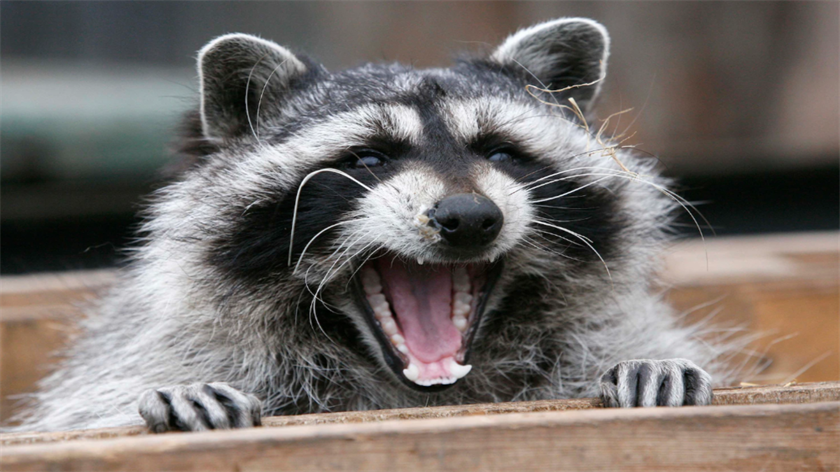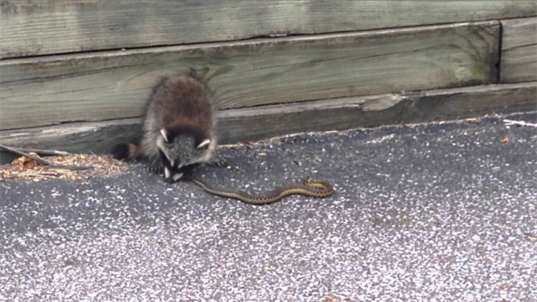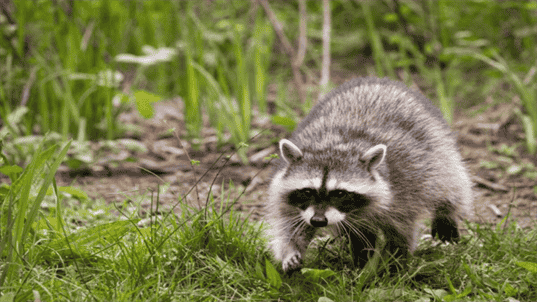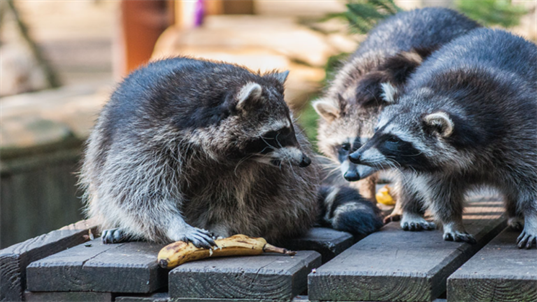Do Raccoons Attack Humans at Night
Raccoons are fascinating animals known for their distinctive black mask, ringed tail, and nimble hands. While these nocturnal creatures are generally shy and elusive, there is some concern about whether raccoons pose a risk to humans at night. Specifically, there is a question of whether raccoons are more likely to attack humans under cover of darkness. In this context, it is essential to understand the behavior and habits of raccoons and the factors that can influence their interactions with humans. By understanding raccoon behavior better, we can help mitigate the risks associated with human-wildlife interactions and ensure that humans and raccoons coexist safely.
Are Raccoons known to be more Aggressive Towards Humans at Night?
Raccoons are nocturnal mammals known for their distinctive black masks and ringed tails. Do Raccoons Attack Humans at Night? These creatures are found across North and Central America and are known for their intelligence, talent, and reputation for getting into mischief. While raccoons are typically wary of humans and will avoid contact when possible, some evidence suggests that they may be more aggressive towards humans at night.
There are a few reasons why raccoons may be more likely to attack humans at night. For one, raccoons are primarily nocturnal animals, so they are naturally more active and alert during nighttime. This increased activity level may make them more territorial and defensive, especially if they feel threatened by humans or other animals.
Another factor contributing to raccoon aggression at night is that humans are often perceived as threatening habitats and resources. As urban development encroaches on natural habitats, raccoons are forced to adapt and may become more aggressive in their efforts to defend their territory and resources. It can include food sources like garbage cans, pet food, and bird feeders, which are often more accessible at night when humans are less likely to be around.
Despite these factors, it’s important to note that raccoons are generally not aggressive toward humans and will usually only attack if they feel cornered, threatened, or provoked. Most raccoon attacks on humans result from human interaction with raccoons, such as attempts to handle or feed them.
Taking a few precautions is essential to minimize the risk of raccoon attacks at night. First and foremost, it’s important to avoid feeding raccoons or leaving food sources out at night. It can attract raccoons to your property, making them more likely to approach humans for food.
Additionally, it’s essential to secure garbage cans, bird feeders, and other potential food sources to prevent raccoons from accessing them. If you encounter a raccoon at night, keeping your distance and avoiding interacting with or approaching the animal is best. If the raccoon appears sick, injured, or aggressive, it’s best to contact a wildlife professional for assistance.

Raccoons may be more active and alert at night; they are generally not aggressive toward humans unless they feel threatened or provoked. Taking precautions to secure potential food sources and avoiding interaction with raccoons can minimize the risk of raccoon attacks at night.
What are Some Reasons Why a Raccoon Might Attack a Human at Night?
Raccoons may attack humans at night if they feel threatened or cornered. Raccoons are naturally curious and may sometimes approach humans out of curiosity, mainly if food is present. If a raccoon feels its young are in danger, it may become aggressive and attack as a form of self-defense. Occasionally, raccoons might also perceive humans as prey if they come across somebody suddenly in the dark. To avoid being attacked by a raccoon, keep your distance and do not attempt to touch or feed them.
While raccoons are generally not aggressive towards humans, there are some situations where they may feel threatened or provoked and may become aggressive. Here are some reasons why a raccoon might attack a human at night:
- Feeling trapped or cornered: If a raccoon feels trapped or cornered, it may become aggressive to defend itself. For example, it can happen if a human unintentionally blocks the raccoon’s escape route.
- Protecting their young: Female raccoons are very protective of their young and may become aggressive if they feel their babies are in danger. It is especially true if a human gets too close to the raccoon’s den or nesting site.
- Territorial behavior: Raccoons are territorial animals and may become aggressive if they feel their territory is being invaded. This can happen if a human enters the raccoon’s territory or if a raccoon perceives a human as a threat to their food sources.
- Rabies or other illnesses: Rarely, raccoons infected with rabies or other diseases may exhibit aggressive behavior towards humans. If a raccoon is acting unusually aggressive or appears sick or injured, it’s essential to avoid contact and contact a wildlife professional for assistance.
- Provocation: In some cases, a raccoon may become aggressive if it feels provoked by a human. This can happen if a human attempts to handle or pet the raccoon or intentionally tries to scare or harm the raccoon.
It’s important to remember that raccoon attacks on humans are rare and that most raccoons try to avoid contact with humans whenever possible. If you encounter a raccoon at night, it’s best to keep your distance and avoid any attempts to interact with or approach the animal. If you believe a raccoon may be exhibiting aggressive behavior, it’s best to contact a wildlife professional for assistance.
Do Raccoons Typically Attack Humans Unprovoked, or is there Usually a Trigger?
Raccoons typically do not attack humans unprovoked. However, when they feel threatened or are protecting their young, they will become aggressive and can attack humans. Generally speaking, most raccoon attacks occur when people attempt to corner and handle the animal. Raccoons may also become aggressive if they feel threatened by loud noises or sudden movements.
In rare cases, a raccoon could be rabid and attack without any obvious trigger or provocation. It is essential to be aware of one’s surroundings while in wildlife habitats and never approach unfamiliar wildlife. If a person finds themselves in a situation that might provoke an angry raccoon, it is best to remain still and avoid direct eye contact until the animal passes.
Raccoons are generally not aggressive towards humans and usually only attack if they feel threatened, cornered, or provoked. While it is rare for raccoons to attack humans unprovoked, there are some situations where a raccoon may become aggressive even without direct provocation.
For example, if a raccoon is sick or injured, it may exhibit unusual or unpredictable behavior, including aggression toward humans. In addition, if a raccoon has become habituated to humans due to frequent feeding or other interactions, it may lose its natural fear of humans and become more likely to approach or attack.
However, in most cases, a raccoon will only attack a human if threatened or provoked. It can happen if a human accidentally comes between the raccoon and its escape route or if a human attempts to handle or interfere with the raccoon in some way. Female raccoons with young may also become aggressive if they feel their offspring are in danger.
To minimize the risk of raccoon attacks, avoiding interacting with them and discouraging them from frequenting human-inhabited areas is essential. It includes securing garbage cans and other potential food sources and avoiding attempts to handle or feed raccoons. If you encounter a raccoon, it’s best to keep your distance and allow the animal to retreat.

While it is rare for raccoons to attack humans unprovoked, it’s essential to treat them with caution and respect and avoid interactions that could trigger aggressive behavior. By taking steps to discourage raccoons from frequenting human-inhabited areas and avoiding attempts to handle or interfere with them, it is possible to minimize the risk of raccoon attacks.
Are There Any Specific Regions or Areas Where Raccoons are More Likely to Attack Humans at Night?
Yes, raccoons are likelier to attack humans at night if they feel threatened or cornered. Raccoons are most commonly found in densely populated areas such as urban parks and rural forests so these areas may be prime locations for raccoon attacks. They can also become aggressive if they are too close to people’s houses, so keeping them away from your property is essential. Also, never feed wild animals, as this encourages them to come closer and increases the chances of an attack.
Raccoons are found throughout most of North America and are generally less likely to attack humans in any specific region or area. However, there are certain situations or environments where humans may be more likely to encounter raccoons and, therefore, more likely to experience aggressive behavior from these animals.
For example, urban and suburban areas with a high concentration of human activity and available food sources may attract raccoons and increase the likelihood of human-wildlife encounters. In these areas, raccoons may become habituated to humans and lose their natural fear, making them more likely to approach or attack.
In addition, areas with a high prevalence of rabies or other illnesses in the raccoon population may increase the risk of aggressive behavior toward humans. It’s important to note that the risk of contracting rabies from a raccoon attack is shallow, as most raccoons do not carry the virus.
Overall, it’s important to remember that raccoon attacks on humans are rare and that most raccoons try to avoid contact with humans whenever possible. By preventing raccoons from frequenting human-inhabited areas, such as securing garbage cans and other potential food sources, and avoiding attempts to handle or interfere with raccoons, it is possible to minimize the risk of aggressive encounters.
FAQs
Q: Are Raccoons Dangerous?
A: Raccoons are generally not considered dangerous animals, and attacks on humans are rare. However, there have been reports of raccoons attacking humans, particularly at night.
Q: What Should I do if I Encounter a Raccoon?
A: If you encounter a raccoon, do not approach it. Instead, back away slowly and give the raccoon plenty of space. If you experience a raccoon in your home, do not try to chase it away. Instead, open a door or window and allow the raccoon to leave alone.
Q: How Can I Avoid a Raccoon Attack?
A: The best way to avoid a raccoon attack is to avoid contact with raccoons altogether. If you must interact with a raccoon, do so from a safe distance. Please do not attempt to touch or feed the raccoon, as this may cause it to become aggressive.
Conclusion
Raccoons are generally not considered dangerous animals, and attacks on humans are rare. However, there have been reports of raccoons attacking humans, particularly at night. To avoid a raccoon attack, it is best to avoid contact with raccoons altogether. If you must interact with a raccoon, do so from a safe distance. Do not attempt to touch or feed the raccoon, as this may cause it to become aggressive.







